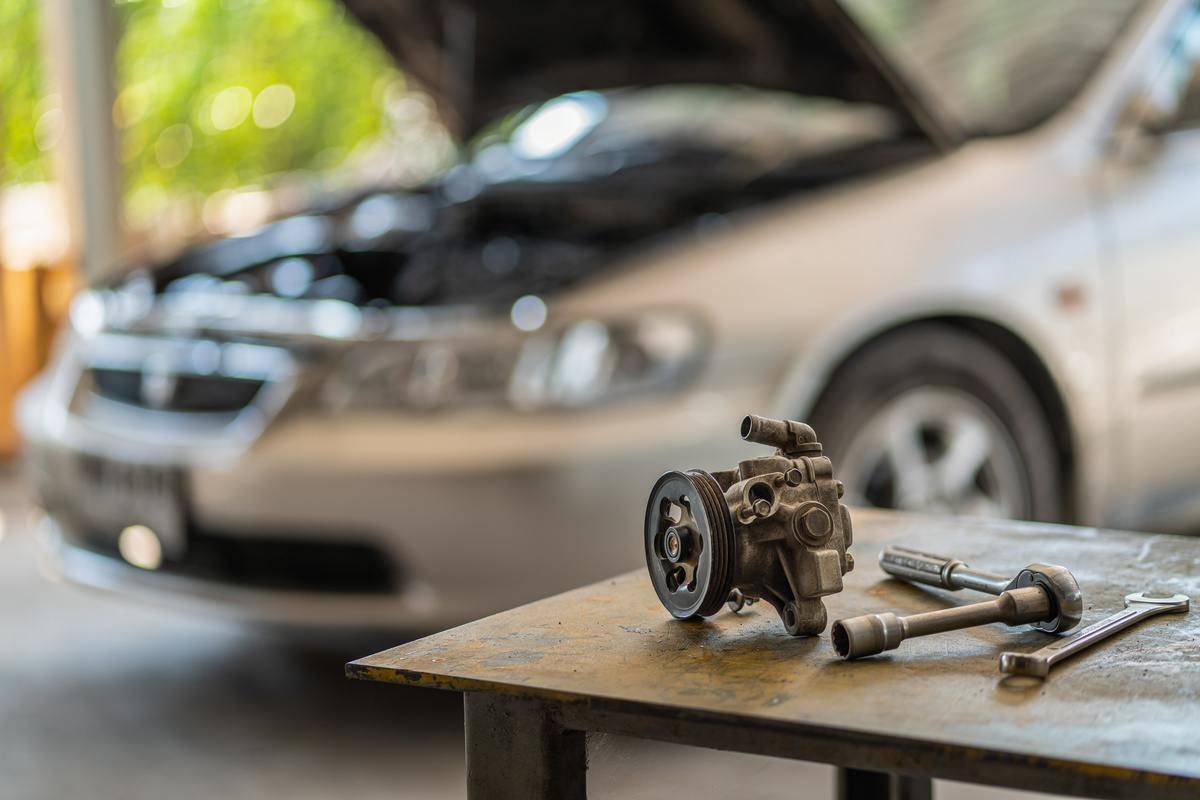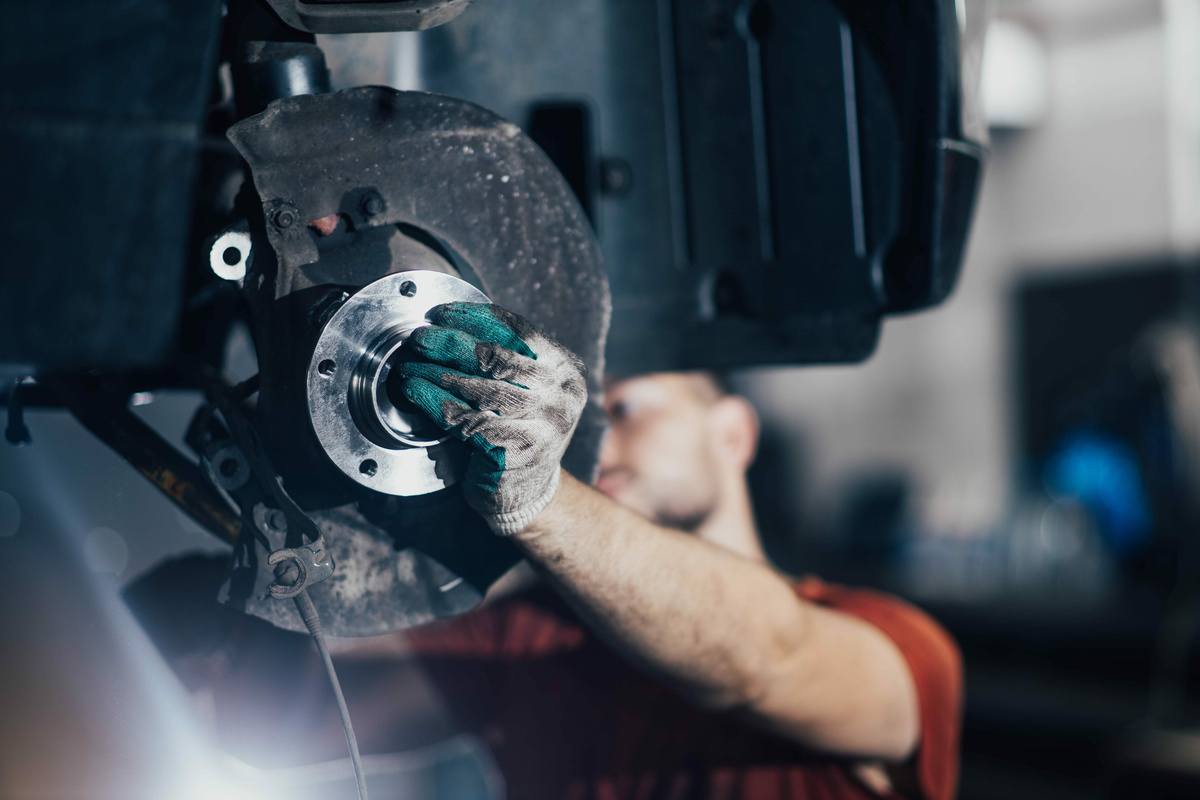Tab washers - tabbed washer
Wheelhubbearing
Eric Riddles is an ASE Certified Master Automobile Technician who has been working as an auto mechanic since 1998 and originally joined the team at Custom Complete Automotive in 2005. Eric has numerous certifications in various aspects of car repair and spent 10 years training the next generation of auto technicians at a local high school Auto Shop classroom.
As you can see below, ball bearings are much less exposed than roller bearings. This has important implications for how long each type will last and how easy they are to service.
Understanding how wheel bearings and other small parts help your vehicle function can seem confusing at first—but it ultimately pays off. Now that you know how important your wheel bearings are and how to take better care of them, you can avoid placing them under unnecessary stress and replace them on time with better parts.
Wheelbearings
Wheel bearings require lubricant (i.e. grease) to function properly. Bearings that are not properly lubricated are likely to rust or grind against each other during use, reducing their lifespan considerably.
While it’s certainly possible to replace wheel bearings on your own, we don’t recommend it for beginners. You’ll need your own wheel chocks, a floor jack, ratchets and sockets in various sizes, a torque wrench, and more. You’ll also need to be comfortable removing the wheels, brake callipers, rotors, and wheel hubs from your vehicle—and putting them all back on securely again.
A wheel bearing comprises steel balls or tapers, commonly called ball bearings or tapered bearings. These bearings are secured within a metal ring known as a race. Positioned within the wheel's core is a hollow metal piece referred to as a hub, where the wheel bearings are housed, facilitating the smooth rotation of your wheels.
Below, we’ll teach you all about wheel bearings—what they are, where they’re located, why they wear down over time, and what activities or movements you can avoid to help your wheel bearings last longer. Let’s roll.
wheelbearing坏了
If you hear a consistent, rhythmic noise that sounds like growling or humming, it's a strong indicator of a bad bearing. These sounds often increase with speed and may be more noticeable when turning.
Wheel bearingreplacement cost
We’ve already touched on one common reason why wheel bearings fail: improper lubrication. But there are plenty of other things that can put strain on your bearings as well.
Repeatedly driving on broken pavement, over potholes, or off-road puts different levels of stress on different sides of your vehicle—and unless your suspension is specifically designed for off-roading, that’s going to make the bearings on one side of your vehicle fail faster than the others.

Most vehicle owners will have better luck purchasing aftermarket wheel bearings from us and having a trusted mechanic perform the installation. Going this route will still save you money on parts, and you’ll be able to rest easy knowing the labour was properly performed.
Customising your vehicle’s springs, shock absorbers, tires, and rims can be a lot of fun—but if you go outside the parts and sizes recommended by your manufacturer, it can also put extra strain on your bearings and cause them to wear out more quickly.
Next, Check our our part replacement guides or learn more about the main components of wheel bearings or the differences between failing brakes and failing bearings. And as always, drive safe!
If you experience any of these symptoms, it's crucial to address them promptly to ensure your safety and the longevity of your vehicle.
wheelbearing中文
Wheel bearings are steel balls or tapered rollers housed inside a ring made of metal. This ring sits inside the hub on each of your vehicle’s wheels, which connects them to the axles. The hub cap (containing a cotter pin, nut, and washer) sits on the outside of the tires to hold the whole system in place.

wheelbearing是什么
It’s no problem to drive your car in wind or rain—but if you’re constantly driving through deep puddles of water or mud, your bearings are likely to rust much faster. These substances can gradually erode the metal on and around your hub assemblies, weaken the seals, and eventually dirty the grease lubricating your bearings.
Inspect your brake pads and rotors regularly. If you notice uneven wear on either side or a distinct groove forming on the rotor, it might be due to a compromised wheel bearing affecting the alignment.
Your vehicle has countless components working together to provide a smooth and safe driving experience. Among these are wheel bearings, tiny yet essential components that play a pivotal role in your vehicle's functionality. Keep reading as we explore the crucial role that wheel bearings play in your vehicle's functionality and the various symptoms that indicate bad wheel bearings.
Worn wheel bearings can affect your braking system. If you notice your vehicle pulling to one side when applying the brakes, it could be caused by a bad wheel bearing.
Most hubs contain an inner bearing and an outer bearing, which are held in place by a seal. This seal prevents dust and other debris from entering the bearings and spoiling their lubricant as you drive. The following diagram shows where all of these parts are located:
Modern vehicles have Anti-Lock Braking System (ABS) that relies on data from various sensors, including wheel speed sensors. A bad wheel bearing can disrupt these readings, leading to ABS failure and potentially compromising your vehicle's safety.
Ball bearings and roller bearings each have their own pros and cons. Ball bearings tend to last longer, since the ring in which they are housed is sealed, which makes it harder for contaminants like dirt and dust to enter the chamber and ruin the lubricant inside. Since the ring housing roller bearings is normally not sealed, their lubricant is more easily contaminated—but they are also easier to access and service.
Some wheel bearings just don’t last as long as others. Most factory bearings last between 85,000 and 100,000 miles (~136,000 to ~161,000 kilometres) before needing to be replaced. Our high-quality aftermarket wheel bearings may last even longer, which is why it’s important not to cut corners and buy cheap parts from unvetted sellers. Lower-quality bearings are often not constructed of materials that can handle heat as resiliently, which causes them to fail sooner and ultimately costs you more money in the long run.
At Custom Complete Automotive, we offer comprehensive wheel and suspension services. Our technicians can diagnose and repair wheel-bearing problems, ensuring your vehicle runs smoothly and safely. Contact us for professional auto repair services.
It’s no surprise that sometimes, mechanics cut corners. But using the wrong tool to install your wheel bearings can damage the hub assembly and increase the friction placed on the bearings, causing them to wear out faster. The same can happen if supporting components like nuts and seals aren’t replaced along with the bearings themselves.
The point of wheel bearings is to reduce friction as your vehicle’s wheels turn. This helps the wheels turn more easily, reducing the strain placed on your driveshaft and transmission system. When wheel bearings wear out, the friction on these components increases and they become susceptible to damage as you drive.
Bad wheel bearings can produce a grinding sensation, especially when you turn the steering wheel. It might feel like your vehicle is dragging or rubbing against something, and this effect can become more pronounced at higher speeds or when turning.
As wheel bearings wear out, you may experience vibrations through either the steering wheel or the entire vehicle. These vibrations can make your driving experience uncomfortable and may worsen with speed.
The way you treat your vehicle has a major bearing on how long your wheel bearings will last—and replacing them with quality aftermarket components on a regular schedule will reduce the likelihood of comfort and safety issues while you drive. Here’s what to do:

Wheel bearings play a critical role in making sure your vehicle handles safely and effectively—but many people know very little about them. Understanding how wheel bearings work can help you recognize problems with the ones in your car or truck and replace them with high-quality aftermarket bearings before they can cause widespread damage to other components.




 8613869596835
8613869596835